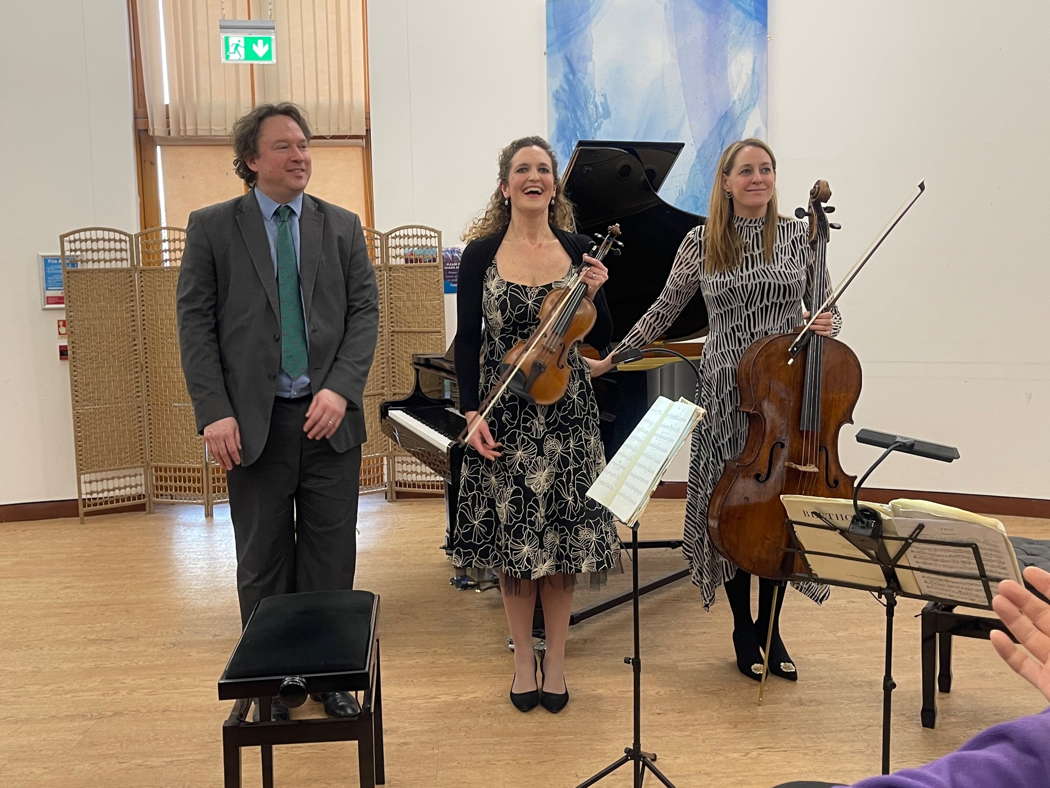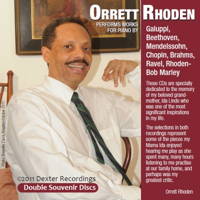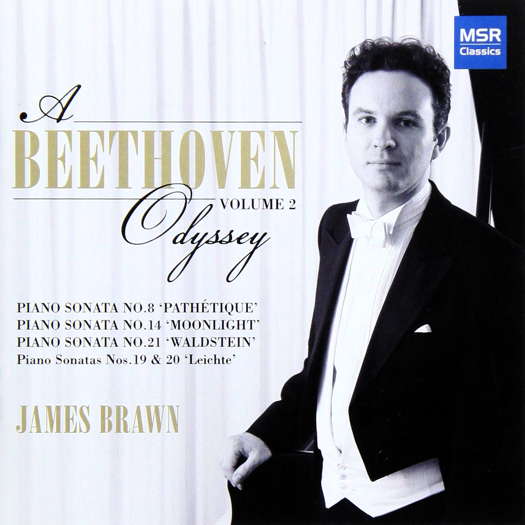- John Philip Sousa
- mvdaily
- light music
- Delos Productions Inc
- Mei Yi Foo
- Jacquet of Mantua
- Jonathan Trout
- Rachel Portman
A Particular Delight
MIKE WHEELER listens to the Aquinas Trio
The Aquinas Trio - Ruth Rogers, violin, Derby Chamber Music (DCM) patron Katherine Jenkinson, cello, and Martin Cousin, piano - ended DCM's latest season in style - Multi-Faith Centre, Derby University, Derby, UK, 24 March 2024. They launched Beethoven's E flat Trio, Op 1 No 1 in an amiable, positively Mozartian way, but were also alert to some typically Beethovenian hints of more subversive elements. Mozart was a definite presence in the second movement, too, as Rogers and Jenkinson developed their exchanged phrases into an intimate conversation, in a reading both deeply involved and involving. Making the Scherzo skip and hop, the playing had a roguish glint in its eye, not least in the rustic drone effects, and the trio set the fourth movement spinning, giving the inner spaces room to breathe, as well as ensuring that the moment when the music dives off into the wrong key, and Beethoven snatches it back again, hit its chuckle-inducing mark.

The Aquinas Piano Trio at Derby University on 24 March 2024. From left to right: Martin Cousin, Ruth Rogers and Katherine Jenkinson
Swiss composer Frank Martin really ought to be better known. His Trio on Irish Folk Tunes was commissioned by an American with Irish ancestry, who was not happy with the result. Well, that was his loss, because it's a delightful work. Not just an exercise in stringing tunes together, it avoids the bitty feel that could easily have resulted. Constant Lambert famously commented that once you've played a folk tune, there's not much you can do with it except play it again, louder. Martin is one of the many composers who have proved him wrong. The opening soft chimes, and the song-like theme shared by all three instruments, were perfectly judged in this performance, while in the second movement, the cello's melancholy solo was deftly offset by the piano's graceful comments. The rhythmically intricate moments were understated but firm, not least the violin's gentle syncopations over a cello ostinato. The way the movement just stops did not feel in the least odd. The concluding Gigue is more consciously sectional than the other two movements, but it carried momentum as it gathered steam. Frustratingly, I've not, so far, found details of the tunes Martin drew on, but the Gigue's second tune is clearly a near-relative of 'Cock of the North'. Maybe the players could have let themselves go a bit more, but it was good foot-tapping fun, all the same.
The rhythmic kick that propels the opening of Schubert's B flat Trio was just a little smoothed out in the Aquinas Trio's slightly soft-grained approach, but they melted beautifully into the second theme. Later, light airy passages were balanced by the recurrence of one of those dark, mysterious spaces that Schubert occasionally opens up. Its last appearance was positively spooky.
The second movement came across as calm and plaintive at the same time. The central section's mixed emotions were projected with intensity and extraordinary concentration. The Scherzo began softly, as though emerging from the previous movement. Its playful energy positively danced, while uneasy undercurrents clearly lay beneath the Trio section's placid surface. The finale's amiability was, similarly, informed by more ambiguous shadings underneath, Martin Cousin's finger-work sparkled as appropriate, and all three contributions meshed in a unified whole. Their treatment of Schubert's teasing false endings was a particular delight.
Copyright © 9 April 2024
Mike Wheeler,
Derby UK





